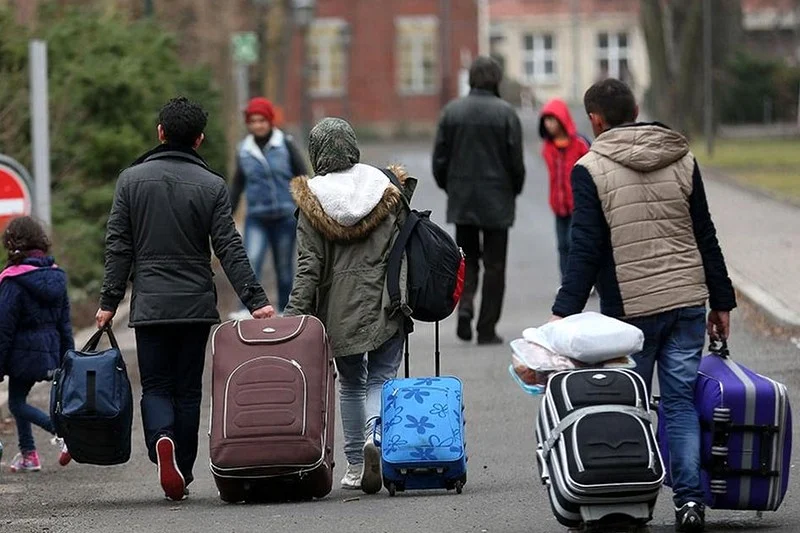A Dutch court has ruled that detaining and expelling a migrant without valid travel documents was unlawful, as the inspection conducted at the internal border was deemed illegal. The ruling has raised concerns in The Hague about the legality of the temporary border controls reinstated by the Dutch government.
The Royal Netherlands Marechaussee (military police) took custody of a 43-year-old Ghanaian man from German authorities, who had detained him for 24 hours. He had been traveling from Spain to Sweden to renew his expired residence permit. However, Dutch authorities denied him entry and placed him in a migrant detention center.
Since the individual was already within the Netherlands, the court determined that it was illegal to detain him at the internal border in accordance with both Dutch and European law. Detentions at exterior borders are not the same as this.
In December 2024, Dutch Minister for Asylum and Migration Marjolein Faber introduced temporary internal border controls, enforced by the Royal Netherlands Marechaussee at the country’s borders with Belgium and Germany as if they were external borders. Despite a decline in asylum applications over the past year, Faber argued that these measures were necessary to manage the high influx of asylum seekers.
The legal validity of these border control procedures is addressed for the first time in the Dutch court’s decision. The Dutch border control strategy was deemed flawed by Carolus Grütters, a researcher at Radboud University, who responded by saying, “Rejection at internal borders is simply not allowed.”
Despite legal and human rights criticisms of the border control policy aimed at curbing illegal migration, the Dutch migration minister insists that there are clear legal grounds for refusing entry to migrants under internal border regulations. However, she noted that the government would not appeal the court’s decision in this particular case due to its unique circumstances.
The ruling has reignited debate over the challenges the Royal Netherlands Marechaussee faces in enforcing internal border controls. The force has raised concerns about limited resources and expertise, noting that only 50 additional officers have been assigned to oversee border inspections. In December, the military police warned that monitoring all 840 border crossings in the Netherlands would be an impossible task.
Although the court deemed the inspection and detention at the internal border unlawful, the migration minister reaffirmed that border monitoring would continue as planned. A ministry spokesperson also stressed that clear legal grounds justify preventing migrants from entering the Netherlands.
The case of the Ghanaian man, who was apprehended while “manipulating” between the borders of both countries, has drawn criticism from legal experts and human rights advocates. His lawyer, Florimond Wassenaar, described the situation as a “farce,” arguing that the border controls were more symbolic than effective.





